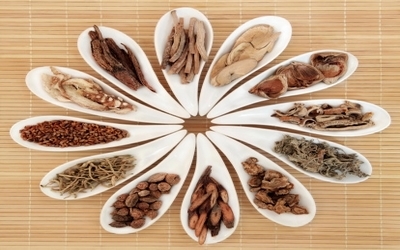Infertility: Could Chinese Medicine Be The Answer?
In a recent study of complementary therapies, researchers found that women receiving Chinese herbal medicine treatments were twice as likely to get pregnant within a four month period than those taking Western fertility drugs and IVF. The findings of the study also suggest that the quality of the menstrual cycle appears to be crucial to the success of the treatment for female infertility. Infertility is usually defined as an inability to conceive after a year or more of regular, unprotected sexual activity. There has been a long recorded history of Chinese herbs being used to treat infertility, dating back as far as 200 AD. Alternative TCM treatments have become increasingly popular in Western countries as more studies are proving that they are both safe and effective. It’s not surprising, given that more than a quarter of the world’s population uses Chinese medicine as part of their regular health care regime.
Researchers did a meta-analysis of non-randomised controlled trials or cohort studies, then compared clinical pregnancy rates which were achieved with Chinese herbal medicine compared to Western medicines, including IVF. In addition to this, they collected common TCM pattern diagnosis in infertility relating to the quality of the menstrual cycle and the associated symptoms. The results show that women had a 3.5 greater chance of achieving pregnancy with Chinese herbal medicine therapy over a four month period than those using Western medicine drug therapy alone. Average pregnancy rates were at 60 per cent for Chinese herbal medicine compared to just 32 per cent for Western medicine. While health is said to be the common goal of both Chinese medicine and conventional treatments, the ideas on the etiology disease, disease itself and the process used to maintain wellness are quite different. Western physicians learn that disease should be cured by prescribing medicine or using surgical intervention, whereas in TCM there is a focus on healing the patient and treating the whole person, not just the disease. As such, there are other factors to take into account, such as the individual’s state of health. According to TCM, a person is far more than their pathology – treating the pathology is usually temporary, however successful it may be at the time of testing and treating.
Where female infertility is concerned, the key factors in TCM are focussing on the reduction of stress and re-establishing balance, as well as regulating hormones and menstruation. It is recognised that many cases of infertility stem from a problem that is often more functional than structural, whereas Western medicine treatments are not only invasive but also stressful for patients. Stress is not conducive to a health pregnancy, and as such can often be the cause of infertility problems. Fertility management has been studied in depth and is well developed in Chinese medicine. GPs in modern China have a reported 70 per cent success rate in treating both men and women with herbs for infertility, and hundreds of herbs are used within these treatments. Herbal medicine is often used with a combination of other therapies, such as massage, diet and lifestyle modifications, and acupuncture. TCM fertility techniques are usually non-invasive and can often provide a better success rate than the costly Western treatments we are more familiar with. If you’re having trouble conceiving, you should speak to your GP who can offer advice on the subject and offer testing to see whether there is anything wrong with regards to your ability to get pregnant.


Comments are closed.